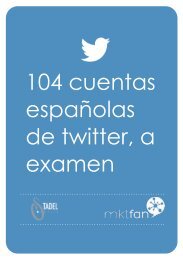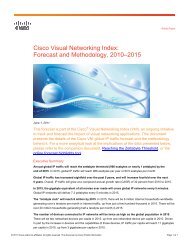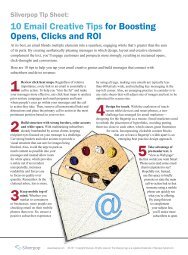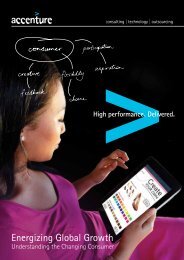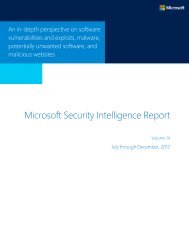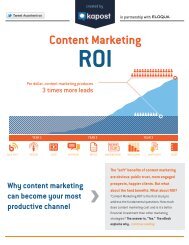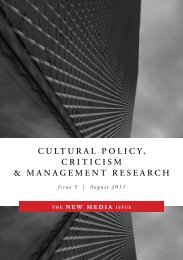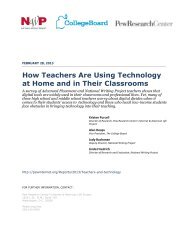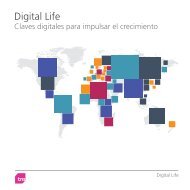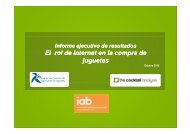Open Innovation 2.0 Yearbook 2013 - European Commission - Europa
Open Innovation 2.0 Yearbook 2013 - European Commission - Europa
Open Innovation 2.0 Yearbook 2013 - European Commission - Europa
You also want an ePaper? Increase the reach of your titles
YUMPU automatically turns print PDFs into web optimized ePapers that Google loves.
100 O P E N I N N O V A T I O N 2 0 1 3<br />
was used to design the original ACSI concept, and<br />
has been adopted in developing ACSI-style interventions<br />
for the EUE programme. Two additional<br />
aspects were added to the original five, creating the<br />
concept of an innovation dynamo to challenge the<br />
thinking of T3 ecosystem participants.<br />
The <strong>Innovation</strong> Dynamo (Figure 2) harnesses the<br />
five discovery skills to two aspects of the innovation<br />
process essential to realising innovation in practice:<br />
implementing and creating impact.<br />
• Associating is the ability to make connections,<br />
linking seemingly unrelated issues and ideas in<br />
new fruitful combinations.<br />
• Questioning leverages the power of provocative<br />
questions to create new perspectives and<br />
modes of thinking.<br />
• Observing is the key to understanding how<br />
things in the world work, and why people<br />
behave as they do.<br />
Figure 2: The <strong>Innovation</strong> Dynamo<br />
• Experimenting means going with best guesses<br />
and not being afraid of failing your way forward.<br />
It is an essential skill of innovators.<br />
• Networking allows us to tap into collective and distributed<br />
intelligence for insight, explanation, expertise,<br />
and inspiration, as well as critical thinking.<br />
• Implementing is the litmus test for innovators<br />
— realising a good idea in practice.<br />
• Creating impact — and celebrating it. This is the<br />
proof of the pudding: does a new product, service<br />
or realised idea actually create value for<br />
its users — and for the ecosystem? If it does,<br />
then we should celebrate it, making it clear to<br />
all those involved that this innovation works.<br />
This is how the <strong>Innovation</strong> Dynamo generates innovation<br />
power and the energy required to maintain<br />
the ecosystem. Working with these skills, pioneering<br />
innovation regions are able to leverage their potential<br />
to create societal impact.<br />
Changing mindsets is an important and often difficult<br />
aspect of the innovation process, but it is essential<br />
both on an individual and a collective level. Thinking<br />
in outcomes instead of outputs, and thinking in<br />
ecosystems instead of areas, is required for progress<br />
to be made and pioneering regions to prosper. Mov-<br />
ing from proprietary ownership to open innovation,<br />
from personal interest to partnership, from following<br />
to initiating, from risk-aversion to experimentation<br />
— these are building blocks that the culture of<br />
innovation Europe is looking for, and which the Horizon<br />
2020 programme hopes to achieve. They mark



